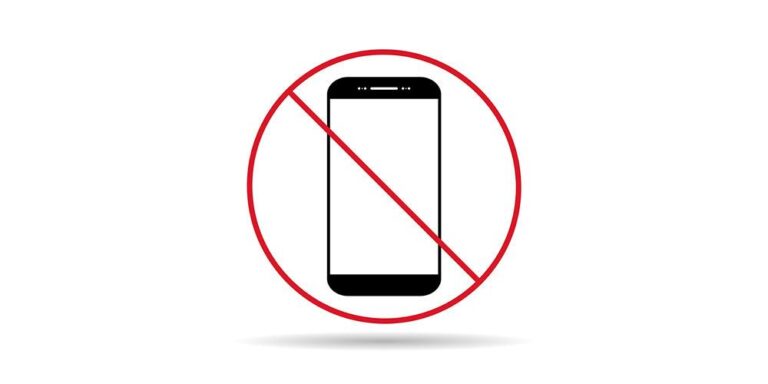The Massachusetts Senate is considering new legislation to impose statewide limits on cellphone use in schools, aiming to address concerns over student distraction and academic performance. As debates intensify, lawmakers are weighing the potential impacts on classroom environments and technology policies across the state’s educational institutions. The proposed measures come amid growing discussions on balancing digital engagement with effective learning.
Table of Contents
- Massachusetts Senate Proposes Comprehensive Restrictions on Cellphone Use in Schools
- Experts Weigh Impact of Proposed Limits on Student Focus and Academic Performance
- Balancing Technology and Learning Recommendations for Implementing Effective Cellphone Policies
- Community and Educator Reactions Shape the Debate Over Statewide Cellphone Regulations
- The Conclusion
Massachusetts Senate Proposes Comprehensive Restrictions on Cellphone Use in Schools
The Massachusetts Senate has introduced a bold bill aimed at regulating the use of cellphones within public schools across the state. The proposed legislation seeks to minimize distractions by enforcing strict limitations on when and where students can access their devices during school hours. Lawmakers emphasize that the initiative is designed to foster a more focused learning habitat and combat issues such as cyberbullying and excessive screen time. Key provisions include:
- Prohibiting cellphone use during instructional time except for educational purposes approved by teachers.
- Banning phones during standardized testing to ensure fairness and integrity.
- Allowing schools to implement lockdown periods for devices during critical learning sessions or assemblies.
Education officials have voiced cautious optimism, highlighting the potential benefits of improved student engagement and reduced distractions. However, concerns remain about enforcement challenges and ensuring equitable access to technology when it is necessary for learning. The bill will now proceed to committee review, where stakeholders from educators, parents, and technology experts will have the opportunity to provide input before a full Senate vote.
Experts Weigh Impact of Proposed Limits on Student Focus and Academic Performance
Education specialists and behavioral scientists are closely monitoring the Massachusetts Senate’s proposal to impose statewide restrictions on cellphone use in schools. Many argue that limiting access during class hours could significantly enhance students’ ability to concentrate, reduce distractions, and ultimately improve academic outcomes. Studies cited by proponents highlight the correlation between unrestricted phone usage and decreased attention spans, suggesting that regulated phone policies might foster a more focused learning environment.
Though,some experts caution against a one-size-fits-all approach,emphasizing that cellphone bans might not uniformly benefit all students.They point to potential drawbacks such as:
- Reduced access to digital learning tools and resources integrated through mobile apps.
- Challenges in emergency interaction between students and families.
- Impact on students with special needs who use phones as assistive devices.
Ultimately, educators advocate for balanced policies that consider both the disruptive potential of cellphones and their growing role in modern education.
Balancing Technology and Learning Recommendations for Implementing Effective Cellphone Policies
As debates intensify around cellphone restrictions in schools, experts emphasize a balanced approach to harness technology’s benefits while minimizing classroom distractions. Rather than outright bans, many states advocate for policies that regulate phone use to enhance focus without cutting off access to digital resources. Effective plans frequently enough include clear guidelines on permissible use during instructional time and restrictions during non-class periods such as recess and extracurricular activities. This nuanced strategy aligns with 38% of schools which currently enforce policies limiting phone use outside of direct classroom instruction, supporting both learning and responsible tech engagement.[1]
Recommendations for rolling out effective cellphone policies emphasize collaboration with educators, parents, and students to tailor rules that respect local school culture while prioritizing educational outcomes. Experts suggest incorporating:
- Comprehensive teacher training on managing classroom technology
- Designated phone-free zones and times to foster concentration
- Student input mechanisms to encourage autonomy and compliance
- Regular reviews of policy effectiveness to adapt with evolving tech usage trends
Such frameworks have been proven successful in states that balance local control with clear directives, ensuring technology supports rather than detracts from student learning.[3]
Community and Educator Reactions Shape the Debate Over Statewide Cellphone Regulations
Reactions from educators and community members have become central to shaping the discussion around the proposed statewide cellphone regulations in Massachusetts schools. Many teachers emphasize the distractions caused by mobile devices in classrooms,arguing that stricter limits could foster more focused learning environments. Conversely, some parents express concerns about restricting communication during school hours, especially for younger students who rely on their phones for safety and coordination outside of school. The dialog reflects a balancing act between technological integration and maintaining educational integrity.
Community forums and school board meetings have highlighted key points of contention and consensus, which include:
- Supporting technology use that enhances education, but limiting distractions caused by casual phone use.
- Ensuring equitable implementation so all schools, regardless of location or resources, can effectively comply with regulations.
- Protecting students’ mental health by addressing the social pressures linked to constant connectivity.
- Allowing reasonable exceptions for emergencies and educational applications.
The Conclusion
As the Massachusetts Senate moves forward with proposals to impose statewide limits on cellphone use in schools, stakeholders across the education spectrum are closely watching the developments. Balancing the benefits of technology with the need to minimize distractions remains a key challenge. The coming legislative sessions will be critical in determining how these policies shape the future of classroom environments in the state.

